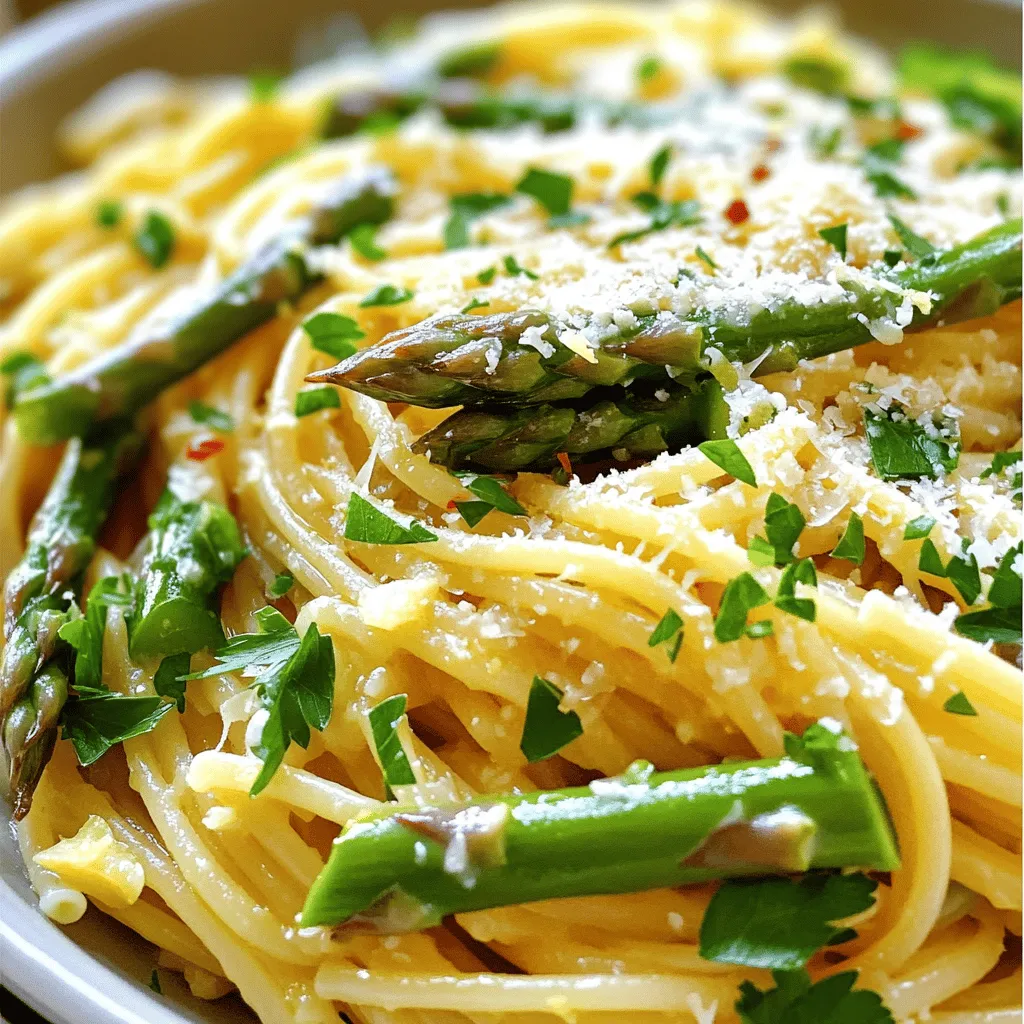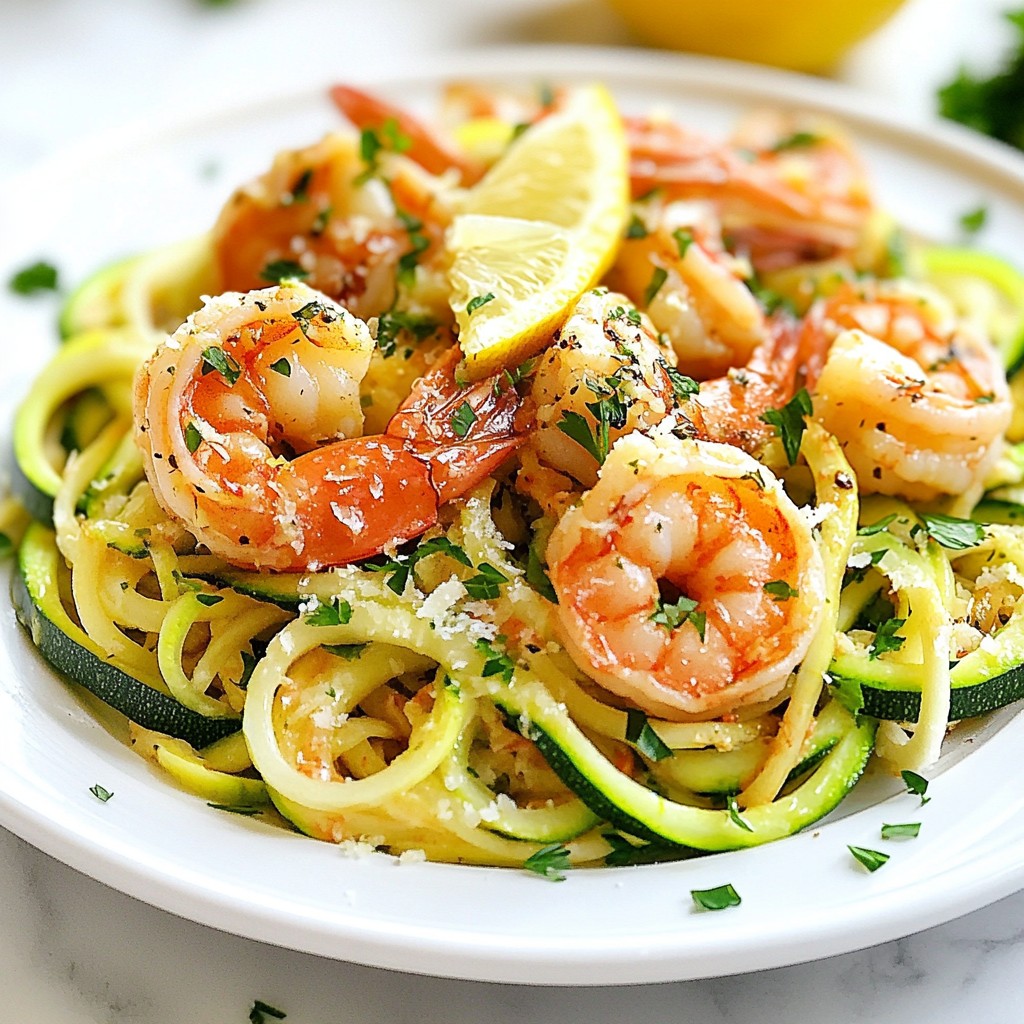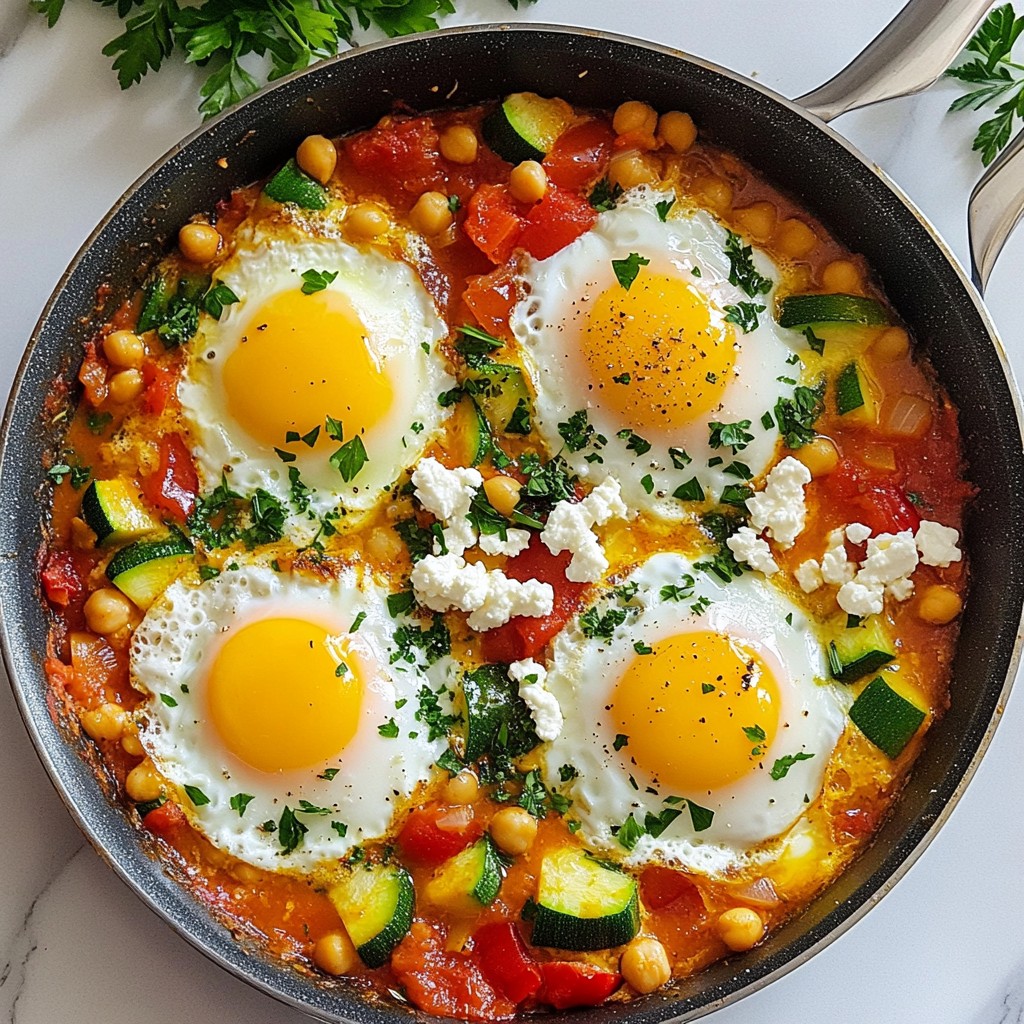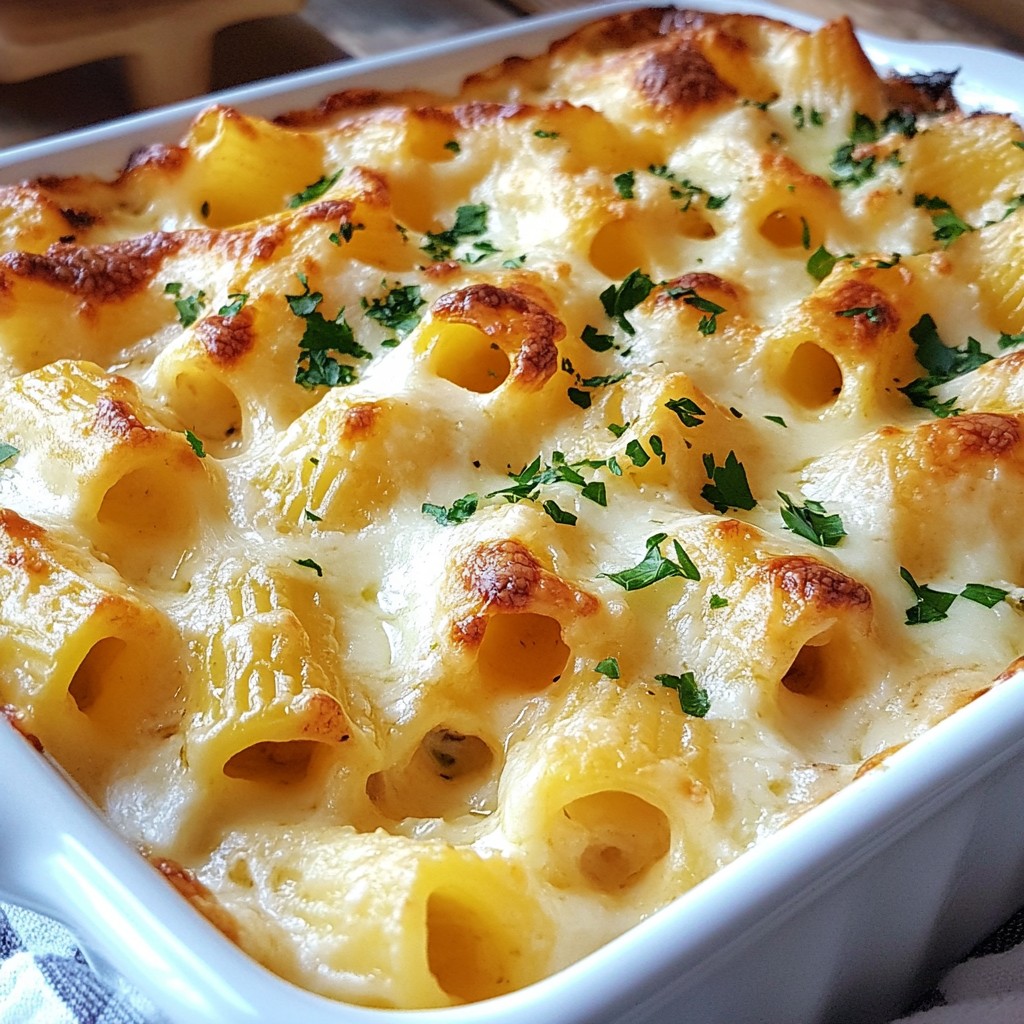Craving something fresh and vibrant? Look no further than Lemon Asparagus Pasta! This easy dish bursts with zesty flavor and bright green veggies. I’ll guide you through each step, from al dente pasta to the perfect sautéed asparagus. Whether you’re a beginner or a seasoned cook, you’ll love how simple and delightful this meal can be. Let’s dive in and get cooking!
Ingredients
Main Ingredients
For a delicious Lemon Asparagus Pasta, you will need these key ingredients:
– 8 oz (225g) spaghetti or fettuccine
– 1 bunch asparagus, trimmed and cut into 1-inch pieces
– 3 tablespoons olive oil
– 3 cloves garlic, minced
– Zest of 1 lemon
– Juice of 1 lemon
– 1/2 teaspoon red pepper flakes (optional)
– 1/2 cup grated Parmesan cheese (plus extra for serving)
– Salt and black pepper to taste
– Fresh parsley, chopped for garnish
Each ingredient plays a vital role in the dish. The pasta provides the base, while the asparagus adds a fresh crunch. Olive oil and garlic create a rich flavor. Lemon brings brightness, and Parmesan adds creaminess.
Optional Ingredients
You can enhance your Lemon Asparagus Pasta with some optional toppings or garnishes:
– Toasted pine nuts for crunch
– Grated lemon zest for extra zing
– Fresh basil or arugula for added greens
For substitutions, consider these ideas if you have allergies or dietary needs:
– Use gluten-free pasta if needed.
– Swap Parmesan with nutritional yeast for a vegan dish.
– Omit red pepper flakes for a milder flavor.
Feel free to get creative!
Step-by-Step Instructions
Preparing the Pasta
To make the perfect Lemon Asparagus Pasta, start by boiling water in a large pot. Add a generous pinch of salt to the water. This helps flavor the pasta. Then, add 8 ounces of spaghetti or fettuccine. Cook according to the package instructions until it is al dente. Al dente means the pasta is firm but not hard. This usually takes about 8 to 10 minutes.
Remember to reserve 1 cup of pasta water before draining. This water holds starch that helps to create a creamy sauce later on. Drain the pasta and set it aside while you prepare the asparagus.
Cooking the Asparagus
For the asparagus, heat 1 tablespoon of olive oil in a large skillet over medium heat. When the oil is hot, add the trimmed and cut asparagus pieces. Sauté them for about 3 to 4 minutes. You want them to be tender but still crisp. This keeps their bright green color and fresh flavor.
Keep an eye on the asparagus as it cooks. You don’t want to overcook it. Once done, take them out of the skillet and set aside.
Combining the Ingredients
In the same skillet, add the remaining 2 tablespoons of olive oil. Then, toss in 3 minced garlic cloves and, if you like a little heat, add 1/2 teaspoon of red pepper flakes. Sauté for about 1 minute until the garlic smells good but does not burn.
Now, add the drained pasta back into the skillet. Mix in the sautéed asparagus, the zest of one lemon, and the juice of that lemon. Toss everything together. If the pasta looks dry, add a bit of the reserved pasta water. This helps make the dish creamy.
Finally, stir in 1/2 cup of grated Parmesan cheese. Season with salt and black pepper to taste. Mix well until the cheese melts and coats the pasta evenly.
This step brings all the flavors together and creates a delightful meal. Enjoy your Lemon Asparagus Pasta!
Tips & Tricks
Perfecting Your Pasta
To make Lemon Asparagus Pasta shine, focus on flavor balance. Start with fresh ingredients. The lemon zest and juice add brightness. Use good quality olive oil for depth.
Cook your pasta in salted water. This step enhances the taste. Aim for al dente. This means the pasta should be firm yet tender. Check it a minute before the package time ends.
For tools, a large pot is key. A colander helps drain the pasta well. A large skillet is perfect for sautéing. A wooden spoon or tongs makes mixing easy.
Serving Suggestions
Pair your Lemon Asparagus Pasta with a crisp white wine. A Sauvignon Blanc complements the dish well. For a non-alcoholic option, serve sparkling water with lemon.
Presentation can elevate the dish. Use a large plate or a shallow bowl. Twirl the pasta for a nice look. Top with fresh parsley and extra cheese. This adds color and flair. A lemon wedge on the side can brighten the plate.
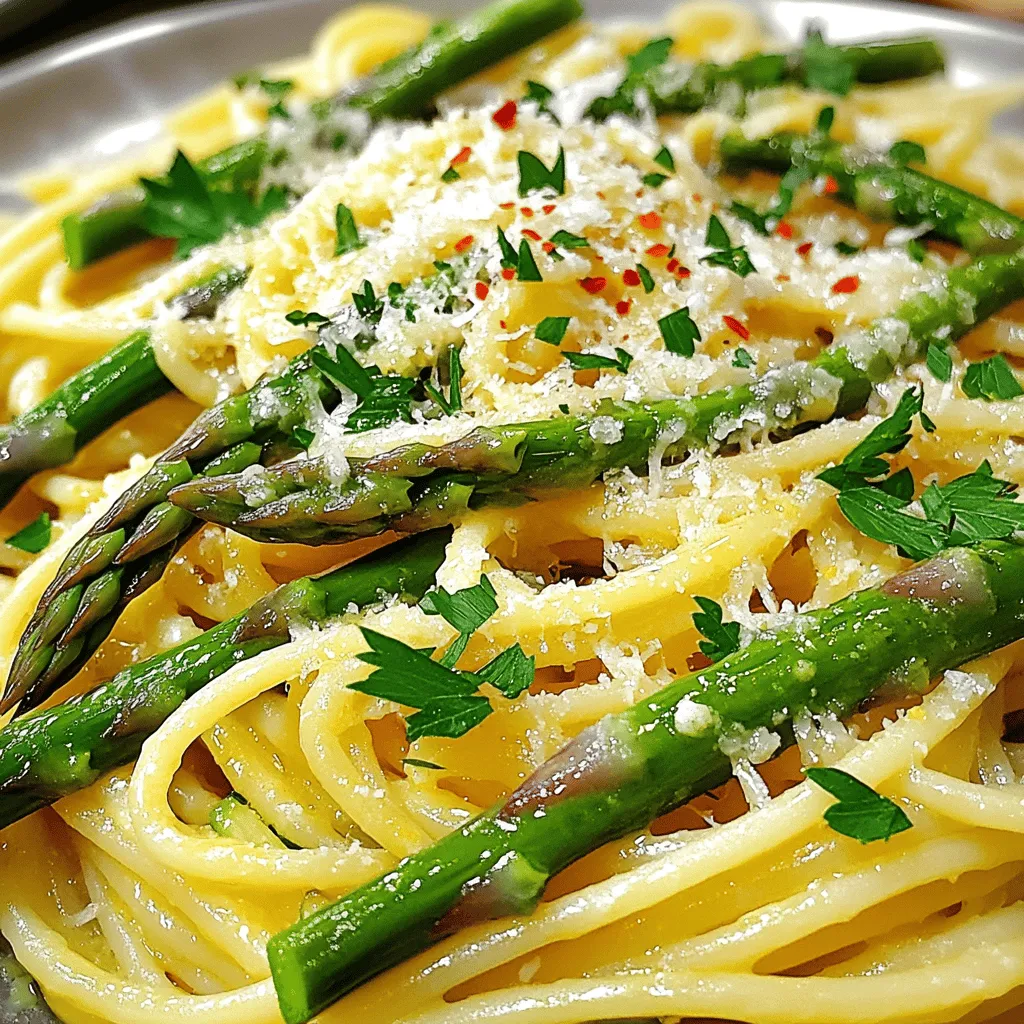
Variations
Dietary Adjustments
To make Lemon Asparagus Pasta vegan, swap the Parmesan cheese for a plant-based cheese or nutritional yeast. This keeps the dish creamy and flavorful. You can also use vegetable broth instead of pasta water for added taste.
For a gluten-free version, choose gluten-free pasta made from rice or quinoa. This ensures everyone can enjoy this dish without worry.
You can add other vegetables for more color and texture. Try cherry tomatoes, bell peppers, or spinach. These options will enhance the dish and keep it fresh.
If you want protein, add cooked chicken, shrimp, or chickpeas. These will make the meal heartier and more filling.
Flavor Enhancements
Adding fresh herbs can brighten the flavors in this dish. Try basil, thyme, or dill for a fresh twist. Mix these in at the end to keep their vibrant taste.
For extra flavor, consider a splash of white wine or a squeeze of fresh lime juice. These will add depth and a zesty kick.
You can also play with spices. A pinch of smoked paprika or Italian seasoning can make it unique.
Mixing in sun-dried tomatoes or olives adds a tasty twist. These ingredients will give your Lemon Asparagus Pasta a Mediterranean flair.
Explore these variations to keep your meals exciting and full of flavor!
Storage Info
Short-Term Storage
To store leftover Lemon Asparagus Pasta, first let it cool down. Place it in an airtight container. You can keep it in the fridge for up to three days. This helps maintain freshness and flavor.
When reheating, use a skillet over low heat. Add a splash of water or olive oil to help bring back moisture. Stir the pasta gently to avoid sticking. This way, the texture stays nice and the flavors shine.
Long-Term Storage
If you want to save it for longer, you can freeze Lemon Asparagus Pasta. First, let it cool completely. Then, place it in a freezer-safe bag or container. Make sure to remove as much air as possible. This helps prevent freezer burn. You can freeze it for up to three months.
To thaw, move the pasta to the fridge one day before you want to eat it. When you’re ready to reheat, put it in a skillet over low heat. Add a splash of water or broth to help it heat evenly. Stir gently until warm. Enjoy your Lemon Asparagus Pasta just like fresh!
FAQs
Common Questions About Lemon Asparagus Pasta
What can I substitute for Parmesan cheese?
If you want a cheese swap, use nutritional yeast for a vegan option. Feta or goat cheese also works well, adding a different flavor. Keep in mind that each cheese brings its own taste.
How can I adjust the spice level of the dish?
To make it milder, skip the red pepper flakes. For more heat, add extra flakes or some diced fresh chili. Just remember, start small and taste as you go.
Nutritional Information
This recipe serves four and has about 400 calories per serving.
* Calories: 400
* Protein: 15g
* Fat: 15g
* Carbohydrates: 60g
* Fiber: 5g
* Sugar: 4g
Lemon and asparagus offer great health benefits. Asparagus provides fiber and vitamins A, C, and K. Lemon adds vitamin C, which helps boost your immune system. Olive oil is heart-healthy fat, making this dish a balanced meal.
Cooking Equipment Recommendations
To cook Lemon Asparagus Pasta, you need:
– A large pot for boiling pasta
– A skillet for sautéing
– A colander to drain the pasta
If you want to try different cooking methods, a pressure cooker can speed up the process. You can also roast the asparagus in the oven for a different texture. Just remember to adjust your cooking times.
In this post, we explored the ingredients, preparation, and serving of Lemon Asparagus Pasta. You learned about main and optional ingredients, cooking steps, and tips for flavor. We also discussed dietary variations, storage methods, and answered common questions.
Creating this dish is simple and rewarding. With a few adjustments, you can make it your own. Enjoy the bright flavors and fresh ingredients. Make this meal your go-to for a tasty, quick option. Happy cooking!
